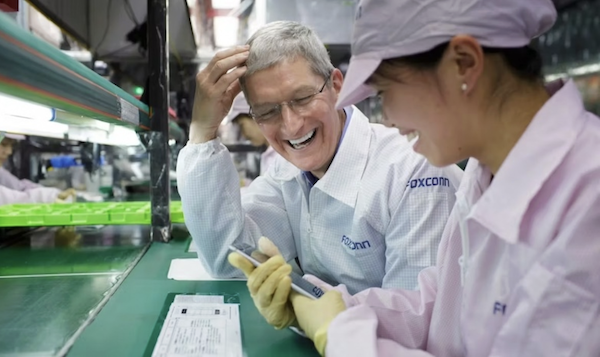Market scorecard
Stocks went sideways on Friday, but US markets just had their best month since late 2023. The S&P 500 climbed over 6% in May, and is now just 4% shy of its record high. Tech stocks led the charge, with the Nasdaq Composite 9.6% higher, driven by cooler inflation data and fading fears of harsh Trump-era tariffs.
In company news late last week, Palantir popped 7.7% after reports that its government footprint is expanding under the Trump administration. Elsewhere, Ulta Beauty gained nearly 12% as strong first-quarter results showed consumers are still splurging on skincare and cosmetics, even with economic clouds on the horizon.
On Friday, the JSE All-share closed down 0.42%, the S&P 500 fell 0.01%, and the Nasdaq was 0.32% lower. No worries.
Our 10c worth
One thing, from Paul

If you work in wealth management, you develop an understanding of finance. This means that you'll have a working knowledge of fiscal and monetary policy. Sadly, this means that you'll find politics even more annoying than ever.
Here in South Africa, you can see how anaemic economic growth, restrictive regulations, corruption and overspending lead to high interest rates. As our debt-to-GDP ratio rises, more and more tax revenue is eaten up by servicing debt repayments.
In the US, the bond market is having a fit about the "big, unlovely bill" that the Republicans are trying to shove through Congress. As a result, long-term US interest rates are hovering at 4.5%, much higher than countries that have their fiscal house in order like (ahem) Greece at 3.3% and Portugal at 2.9%.
The person on the street probably thinks, "what's a bond?" Ignorance is bliss. To them, politics is just about noisy celebrities trading insults.
Michael's musings

I've been thinking about the sheer scale of Apple's production processes. Last year, the company sold 231 million iPhones, of which around 100 million were to Americans. That is a lot of phones, so just consider the number that need to be manufactured each day. Roughly speaking, Apple needs to produce 632 000 phones each day, and 274 000 just to service the US market.
The scale of their supply chain is truly impressive. The Financial Times estimates that recent-model iPhones have around 2 700 component parts sourced from 187 suppliers in 28 countries.
Modern manufacturing uses a technique call Just In Time (JIT) supply. Instead of sitting on large amounts of components, which cost money and need storage, suppliers deliver their product just before it is needed by the factory. In a perfect setting, components go from the loading bay directly to the assembly line.
I can't see how Apple would be able to move its supply chain from Asia to the US to reach a scale of 274 000 phones a day. It has taken them years to get any meaningful production numbers out of India, and that is in a region favourable to manufacturing.
Apple's monster logistics network is arguably more impressive than their beautiful products.
Bright's banter

e.l.f. Beauty is leaning hard into Gen Z cool, snapping up Hailey Bieber's skincare brand rhode in a $1 billion deal. Investors liked the glow-up, as e.l.f. shares rose on the news. Yes, that's rhode with a small r.
rhode has doubled its customer base in a year and pulled in $212 million in net sales, largely thanks to viral hits like its lip balm-slash-phone accessory and its "clean girl" aesthetic.
For e.l.f., which just posted its 25th straight quarter of growth (albeit a slower 4% year-on-year), this is a power move to stay relevant. As beauty sales soften and inflation eats into margins, it's hoping rhode can bring fresh buzz, and a younger fanbase to the portfolio.
Big bet, big balm, big Bieber energy.
Linkfest, lap it up
With age, people exercise less. This is when they really should be locking in those gains - The secret to longevity is staying active.
Johannesburg fell out of the list of top 40 financial centres. This makes us feel sad - The world's top market location in 2025.
Signing off
Asian markets slumped this morning, with the MSCI Asia-Pacific index down 1.1%, its worst drop in over a month. A fresh war of words between China and the US over trade deal breaches, plus Trump's threat to double tariffs on steel and aluminium, sent Hong Kong stocks tumbling 2.5%.
In local company news, Dis-Chem's full-year earnings rose 20%, boosted by tight payroll control. Despite consumer pressure, the group plans to open 39 new pharmacies.
US equity futures are slightly lower pre-market. The Rand is holding steady at around R17.97 to the US Dollar.
The year is flying by. Have a good June!